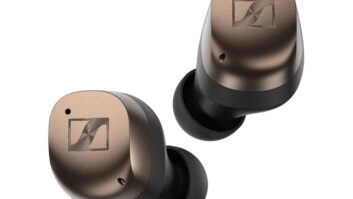What do you get when you lock nine top merchants, one buying group director and one industry analyst in a CES conference room for 90 minutes? Eleven different opinions and the 2006 TWICE Roundtable: Retailing. In this installment, however, the participants are actually in accord on one point — that when incompatible high-definition DVD formats compete, nobody wins. — Alan Wolf
TWICE: How are you handling the HD DVD/Blu-ray situation? Do you take sides? Do you carry both? It’s got to be even messier for those of you that sell entertainment software.
Michael Vitelli, Best Buy: You described it pretty well — it’s a mess. We spent well over the last year trying to talk to everybody that we deal with on the technology side and the software side. The only rational way to do this is to come to market with a single format. The opportunity that we as an industry are missing with the explosion of high-definition television is almost …
John Flanner, Flanner’s: … criminal.
Vitelli: It is almost criminal. It’s a shame. We’re missing a tremendous opportunity. Somebody showed me a Fortune magazine article, probably the first of thousands to come. The headline was “Betamax Versus VHS: Sit This One out. Don’t be a Casualty in the Format War.” And I don’t think consumers are going to fight it. They’re not going to participate, and it’s going to be a tremendous lost opportunity. Unfortunately, once the war starts, it’s almost impossible for it to stop until one side wins and one dies, which is inevitable.
TWICE: What about the possibility of a dual-deck unit?
Dan Schwab, D&H Distributing: They are hopeful that they can come up with these players that play dual-to-dual formats. The fact that there is no standard hurts everyone in this room, and it hurts the consumer. Standards encourage technology adoption. That’s why they’re trying to make media PCs plug-and-play so they can grow the market. Until you do that, people stand on the sidelines. Only the early adopters will take advantage of it.
Jim Hamilton, RadioShack: We’re seeing battles going on over standards in home plug-in and other areas too. There are other technologies out there that are popping up that would be great for the consumer to help ease installation, and that would drive the rollout of some of these products.
TWICE: So what’s it going to be, chocolate or vanilla?
Vitelli: We’ll sell both. If they’re going to be there, we’re going to show both.
Joe McGuire, Tweeter: The consumer will vote, and ultimately, as Mike said, one will win and one will lose. It will be a shame. At the end of the day, all of us want to keep what is best for the customer in front. That’s how you drive your business. But this format war puts us in a position of not being able to meet that responsibility, because we don’t know which format will win. So you get put in a position where you carry both.
It’s a really odd thing to have to say to your customer, though, when they ask the very legitimate question of which one they should buy, that the honest answer is we don’t know. It’s just not a good position to be in for anybody.
Frank Sadowski, Amazon.com: It’s impossible to predict what the customer will decide. The customer will look at the intrinsic value in the products, the quality, the price, the convenience, the availability and the brands. But it’s impossible for us to predict how the customer will vote.
From our standpoint, we’ll very carefully look at the data in real time — not only what people are purchasing, but how many are looking at each format and how much time they spend looking. We’ll try and give them as much to go on as possible and try not to be put in this horrible position of intermediary. But there’s no question they’ll blame us rather than the supplier in some way for this problem.
TWICE: Do you anticipate a backlash from the millions of customers with analog connection HDTVs that can’t receive a high-definition DVD signal because of software encryption?
Vitelli: Or backlash from all of those ED plasmas that went out over the past two years. All of those potentials exist. I haven’t seen a statistic on it, but I would bet that 90 percent of the people that have an ED plasma TV think they have high definition.
TWICE: Do you think one side will eventually blink?
Schwab: Both camps are pretty much locked into this, and they have a lot at stake to lose. You don’t see either side really giving an inch.
Sadowski: With the way the brands are aligned, I agree that it’s likely to be a long struggle.
Flanner: If it takes long enough, it could just get leap-frogged by a downloaded hard drive and nobody wins. I think there’s frankly a pretty good chance of that.
Ross Rubin, NPD Techworld: Don’t you think we’ll also see people continuing to invest in standard-definition DVDs? In the case of SACD, people continued to invest in the old generation of media — they continued to buy CDs, at least until Napster came along. Don’t you think that we’ll see a similar phenomenon with DVDs? Even though there’s obviously an order of magnitude quality improvement in these formats, the idea is that CD is good enough and 480p DVDs, in many customers’ eyes, are good enough too. They’ll sit out of the format war for awhile.













